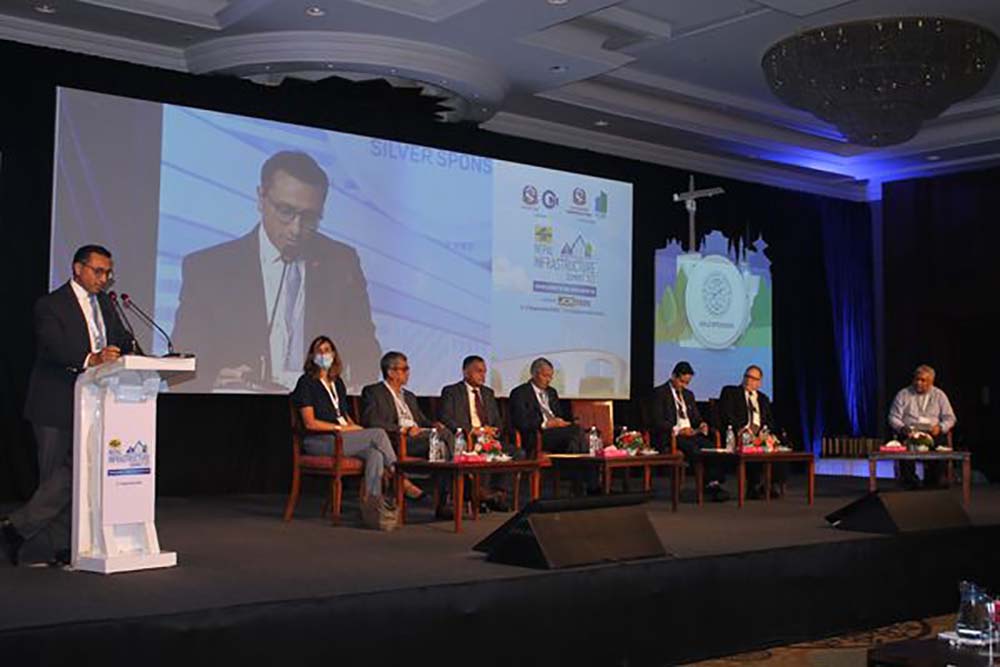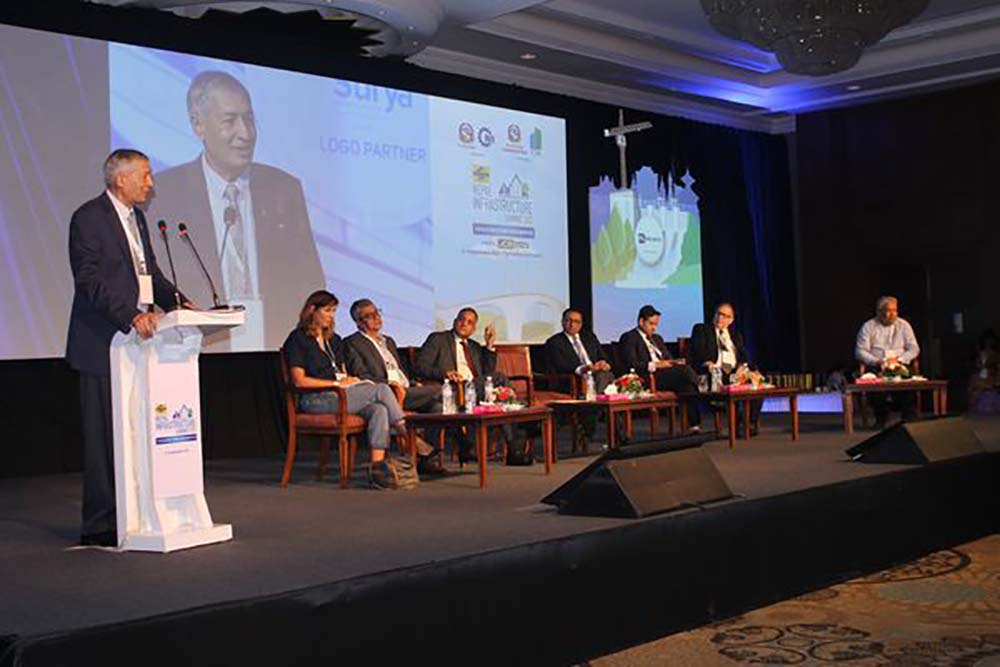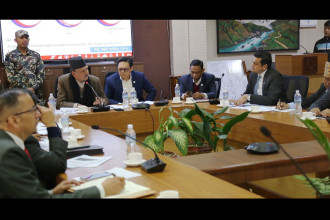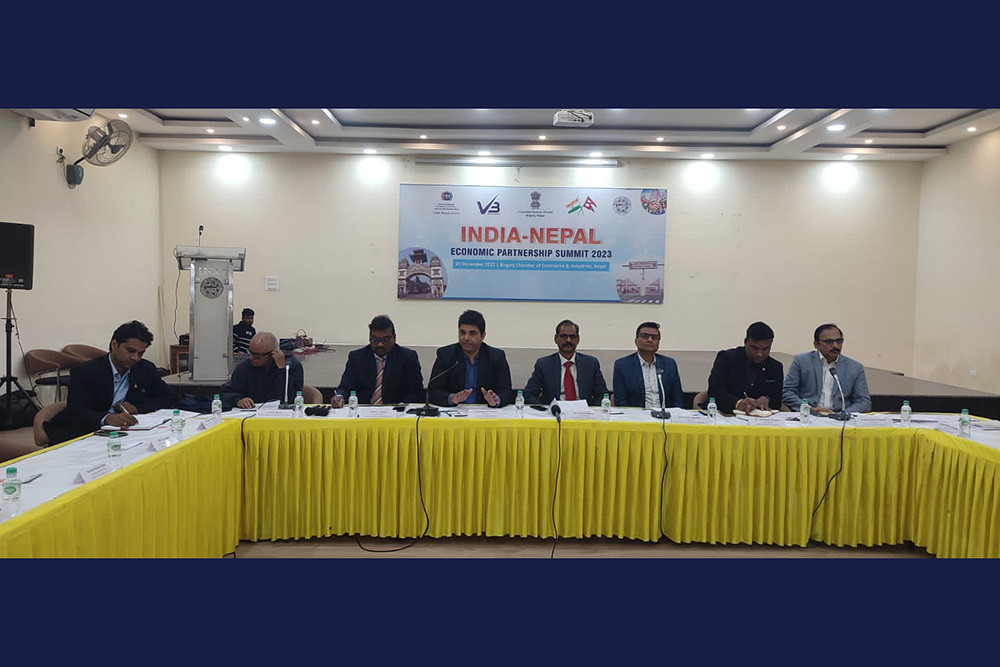
KATHMANDU: Experts participating in a session of the Nepal Infrastructure Summit 2022 expressed their views that the nature and priority of infrastructures needed for development have changed.
In the 'Infrastructure for Growth - The Big Picture Post-Covid Scenario' session of the summit jointly organised by the Ministry of Physical Infrastructure and Transport (MoPIT) and the Confederation of Nepalese Industries (CNI), experts said that there has been a difference in the priority of infrastructure and the demand for investment in the changing environment.
The experts said that due to the Covid-19 pandemic, there is a need to reconsider the existing infrastructure, the model adopted in its construction, and participation. They said climate change, social welfare, priority of long-term goals and changes in the nature of infrastructure beneficial to all will demand a lot of investment. They expressed their views that the participation of the private sector in the construction of public infrastructure is necessary at a time when limited government resources are becoming insufficient to fulfil other mandatory responsibilities of the state. For this, the government will have to set up a regulatory system and create an environment that would instil trust in the private sector, they opined.
Although infrastructure is the first condition to make the economy dynamic, thorough study and research, target setting, risks and benefits should be kept in mind, said economist Swarnim Waglé, former Vice-Chairman of National Planning Commission (NPC) and Chief Economic Advisor at the UNDP Regional Bureau for Asia and the Pacific (RBAP) in New York. He stressed the need to avoid construction of opaque infrastructure based on government whims and suggested taking steps in building future-oriented infrastructure.
Although many countries of the world have benefited from industrial revolutions, Nepal has not been able to benefit from them yet. The current fourth industrial revolution has given birth to artificial intelligence (AI), information technology (IT), machine learning and it is necessary to pay attention to such digital infrastructure, he stated.
The Asian Development Bank has estimated that the countries in the Asian region have incurred losses worth more than $1.7 trillion during the coronavirus pandemic. The need for the private sector's participation in infrastructure construction has increased as the pandemic caused considerable damage, and also there is pressure to invest in modern infrastructure, said Ashok Lavasa, Vice-President for Private Sector Operations and Public-Private Partnerships of the Asian Development Bank (ADB).
The public debt of Nepal has increased as the revenue decreased during the pandemic and at the same time, the government also incurred expenses to control the pandemic. "For this reason, the private sector should be involved in infrastructure construction," Lavasa opined.
Radhesh Pant, former CEO of Investment Board Nepal, said, "We all agree that private investment is needed. But the kind of politicisation that takes place here, this mindset needs to be changed."
Likewise, CNI Vice President Nirvana Chaudhary said that many infrastructure projects have been affected due to lack of predictable government policies.
[caption id="attachment_28588" align="alignnone" width="1000"] Former Finance Minister Yubaraj Khatiwada speaks at the 'Infrastructure for Growth - The Big Picture Post-Covid Scenario' session of Nepal Infrastructure Summit 2022 in Kathmandu, on Thursday, September 8, 2022.[/caption]
Former Finance Minister Yubaraj Khatiwada said public–private partnership (PPP) model has not been successful in Nepal for two reasons. "The partnership requires honesty which is not happening in Nepal and another thing is that many of our laws are not relevant to the time." he opined and added there were many things that still need to be improved to attract investment.
The Society of Economic Journalists-Nepal (SEJON) was the knowledge partner for the event.
READ ALSO:
Former Finance Minister Yubaraj Khatiwada speaks at the 'Infrastructure for Growth - The Big Picture Post-Covid Scenario' session of Nepal Infrastructure Summit 2022 in Kathmandu, on Thursday, September 8, 2022.[/caption]
Former Finance Minister Yubaraj Khatiwada said public–private partnership (PPP) model has not been successful in Nepal for two reasons. "The partnership requires honesty which is not happening in Nepal and another thing is that many of our laws are not relevant to the time." he opined and added there were many things that still need to be improved to attract investment.
The Society of Economic Journalists-Nepal (SEJON) was the knowledge partner for the event.
READ ALSO:
 Former Finance Minister Yubaraj Khatiwada speaks at the 'Infrastructure for Growth - The Big Picture Post-Covid Scenario' session of Nepal Infrastructure Summit 2022 in Kathmandu, on Thursday, September 8, 2022.[/caption]
Former Finance Minister Yubaraj Khatiwada said public–private partnership (PPP) model has not been successful in Nepal for two reasons. "The partnership requires honesty which is not happening in Nepal and another thing is that many of our laws are not relevant to the time." he opined and added there were many things that still need to be improved to attract investment.
The Society of Economic Journalists-Nepal (SEJON) was the knowledge partner for the event.
READ ALSO:
Former Finance Minister Yubaraj Khatiwada speaks at the 'Infrastructure for Growth - The Big Picture Post-Covid Scenario' session of Nepal Infrastructure Summit 2022 in Kathmandu, on Thursday, September 8, 2022.[/caption]
Former Finance Minister Yubaraj Khatiwada said public–private partnership (PPP) model has not been successful in Nepal for two reasons. "The partnership requires honesty which is not happening in Nepal and another thing is that many of our laws are not relevant to the time." he opined and added there were many things that still need to be improved to attract investment.
The Society of Economic Journalists-Nepal (SEJON) was the knowledge partner for the event.
READ ALSO:
Published Date: September 8, 2022, 12:00 am
Post Comment
E-Magazine
RELATED B360 National





